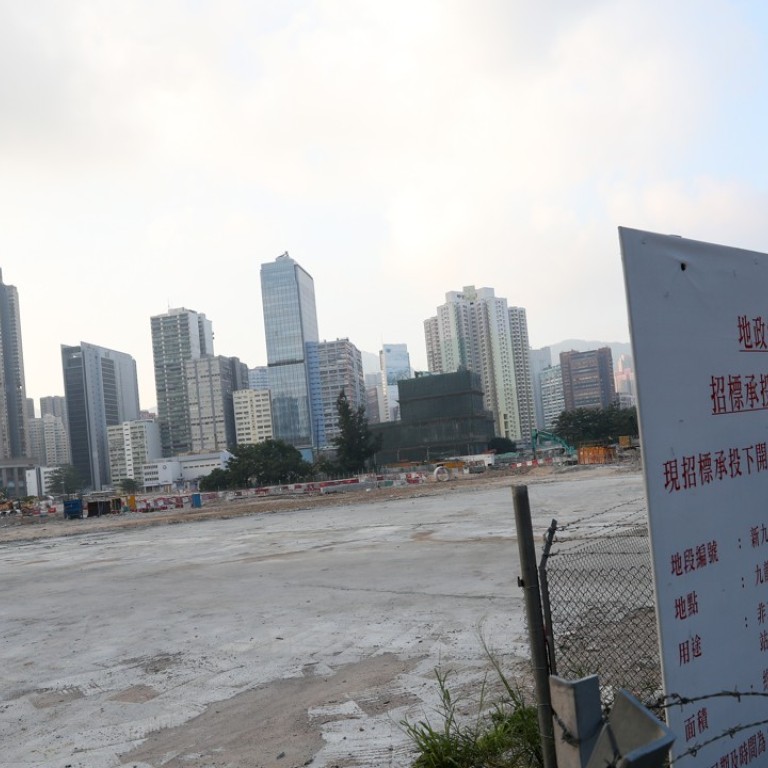
Hong Kong can spend HK$40 billion a year on needy for next decade and still be in good financial shape, Professional Commons think tank says
Professional Commons, a think tank of pro-democracy professionals, says amount – a portion of what the government has been earning annually from land sales – should go towards recurrent spending
The Hong Kong government should channel more of the city’s income from land sales towards the needy, as even if it spent up to HK$40 billion (US$5 billion) every year for the next decade, it would still be in good financial shape, according to a study by a group of pro-democracy professionals from different sectors.
“The government has always argued that non-recurrent revenue – such as the money from land sales – is volatile and hence it should not be used to support recurrent expenditure,” said Victor Wai Chi-kin of the Professional Commons on Monday.
2.8 million Hongkongers to get cash handout of up to HK$4,000 each, in ‘targeted’ scheme to share massive budget surplus
“But the fact is the revenue from land sales has recurrently emerged … and the government could consider using a portion of the ‘non-recurrent’ revenue to back recurrent expenditure,” added Wai, who heads the think tank’s policy committee on banking and finance.
Paul Chan’s cash handout plan praised for ‘bravery’ but he still fails to win some hearts
Wai said the committee studied 20 years of historical, economic and revenue data since the city’s return to Chinese rule in 1997, and generated 2,000 possible scenarios.
They concluded that if the government added a new policy initiative worth about HK$30 billion to HK$40 billion to the administration’s annual recurrent expenditure, they were 90 per cent confident that it would not run a structural deficit.
Four years ago, a government panel forecast a fiscal structural deficit by 2021. While experts agreed that the city’s ageing population would increasingly shrink the tax base and suck up more public funds for health care, they said the city’s supercharged income from huge gains on the stock market and record-high land prices could delay the inevitable.
Why having too much money can be a problem – just ask Hong Kong’s financial chief
Indeed, in the 2016-17 financial year, the government earned almost HK$128 billion from land premiums, when public land was sold to private developers, and this figure is forecast to be about HK$121 billion for the 2018-19 financial year.
The government has traditionally considered land premiums part of capital revenue, meaning the funds are used to invest in needs such as infrastructure. But income from other taxes goes into the government’s general revenue account and is used for recurrent spending.
Wai called on Chan, an accountant by trade, to ditch his “money-hoarding approach”.
Accountancy lawmaker Kenneth Leung, a member of the think-tank, said the massive surplus accumulated over the years could have been spent in a more effective way.
Loans plan ‘could help extra 10,000 Hongkongers a year’ get onto property ladder
“The non-recurrent revenue could be invested in medical, education, environment and housing,” said Leung, who is also part of a group of legislators known as the Professionals Guild.
Hong Kong government’s problem is not deficits but structural surplus, say economists
Non-taxpayers aged 18 years or above who neither own property nor get government allowances would be eligible. Those who receive a tax reduction, rate waiver or allowance can claim the difference if the concessionary amount is less than HK$4,000.
Leung added that the scheme was too complicated and the Guild’s six members might not vote in favour of the budget in the Legislative Council.

